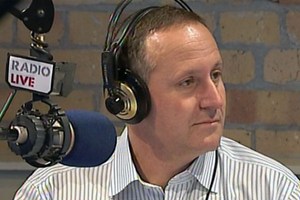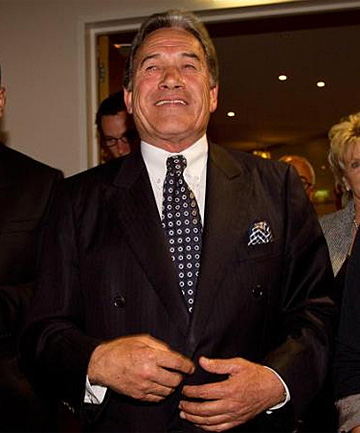From the December-January issue of The Spark.For a longer piece on the Mana Party in the election, see this article.
The Key Factor: PR and The National Party
 Novembers’ election saw a narrow victory for the National Party and its allies. Compared to their 2008 result, National saw their vote drop by about 10%- over 95,000 votes. They only received such a large share of the vote because Labours dropped even more- an enormous 255,000. ACT went from 5 MPs to 1, who would have been gone too if not for winning Epsom- the country’s richest electorate with the lowest Maori population. The Greens and NZ First were the only parties in parliament that grew their vote from 20081. 1 in 4 people did not vote.
Novembers’ election saw a narrow victory for the National Party and its allies. Compared to their 2008 result, National saw their vote drop by about 10%- over 95,000 votes. They only received such a large share of the vote because Labours dropped even more- an enormous 255,000. ACT went from 5 MPs to 1, who would have been gone too if not for winning Epsom- the country’s richest electorate with the lowest Maori population. The Greens and NZ First were the only parties in parliament that grew their vote from 20081. 1 in 4 people did not vote.
All in all, about a third of New Zealand’s adult population voted for National. Those voters can’t all be written off by the left as “middle class”. Around 75% of people in New Zealand make a living by selling their ability to work, and while there is significant stratification within that 75% it (many near the top of the pay scale would expect to personally benefit from National policy, though this is usually not the case2) the reality is workers are continuing to vote for the National Party.
This can in part be put down to Nationals slick PR campaign crafted by the Australian public relations firm Crosby/Textor before the 2008 election. For the last 4 years John Key has cultivated an image of a smiling, friendly everyman. He refused to be interviewed by Radio New Zealand and their no-nonsense journalists, but appeared regularly on Radio Sport where he discussed topics such as cats and how attractive he found British actress Liz Hurley. He even hosted a one hour show on Radio Live which he described as an ‘election free zone’.
This act by Key seemed to appeal to a section of the population, and somehow his sheen of populism didn’t scratch. He was able to brush it off when the media reported that Aroha Ireland, the poster child for National’s 2008 campaign, now aged 16, was heading to Australia saying there were no opportunities for young people in this country. “I don’t see us catching up, we are going backwards while they are getting way ahead,” she told media. Aroha was part of what Key in 2008 described as an “underclass” which he admits has actually grown under his watch.
Labours fear based campaign
Labour didn’t have a popular leader this past election. The party machine seemed to realise that Phil Goff was about as exciting a a wet dish cloth and left his face off billboards, opting instead to showcase their polices. While the $15 minimum wage policy is a good one, Labour jumped on that bandwagon to late for it to be seen as genuine concern for low paid workers (Unite led a campaign for a living wage in 2009 and it has been Green policy since then). As per usual, Labour’s biggest attempt at winning votes was playing the “we’re not National” card. As such their campaign was based on fear, fear of what might happen if National remained in government.
Their message to the poor of New Zealand was vote Labour- you have no other choice. Campaign material disguised as eviction letters were sent to solo parents, and most cynically of all Phil Goff told Radio New Zealand he was so adament about not working with Hone Harawira that if Mana was needed to form a government he would concede and let National govern.
Political Zombie: The return of New Zealand First
 The nationalist New Zealand first party did not cross the 5% threshold in 2008, possibly reflecting that their views on matters like immigration were falling out of favour with a more tolerant society. They were poised to to get a similar result in 2011 until political commentators reached a consensus that the only chance the country had of a Labour led government was if NZ First got into parliament. Two of the writers on The Standard New Zealand’s most popular centre-left political blog declared their intention to vote for NZ First. It was an extreme example of “strange bedfellows” as the tiny white supremacist movement had also endorsed New Zealand first.
The nationalist New Zealand first party did not cross the 5% threshold in 2008, possibly reflecting that their views on matters like immigration were falling out of favour with a more tolerant society. They were poised to to get a similar result in 2011 until political commentators reached a consensus that the only chance the country had of a Labour led government was if NZ First got into parliament. Two of the writers on The Standard New Zealand’s most popular centre-left political blog declared their intention to vote for NZ First. It was an extreme example of “strange bedfellows” as the tiny white supremacist movement had also endorsed New Zealand first.
Many other would-be Labour/Green voters had the same idea. As it typically does, this strategic voting failed. New Zealand First achived 7% of the vote, but as their extra votes came t the expense of Labour, the Greens and possibly even Mana their seats had no impact on the forming of a government. It instead meant the entry to the house of people like Richard Prosser, who believes the burqa should be banned in New Zealand and compulsory military training should be introduced.
A Greener parliament
The other high achiever was the Greens, who now have a record 14 MP’s, including New Zealands first deaf MP Mojo Mathers who entered parliament after special votes were counted. The high vote for the Green Party reflects a deep concern for the environment- which polls show was seen as the most important issue for voters- no doubt the Rena oil spill played a role too. While the last National government had a memorandum of understanding with National, no formal agreement exists between the two parties this year.
MMP referendum
MMP was still the favoured voting system by New Zealand, but at a much reduced majority from when it was introduced. A review into MMP will take place which could lead to a lowering of the threshold required for parties to gain representation.
Looking toward 2014
Three years of long struggle lies ahead. A campaign against funding cuts for Aucklands only 24/7 rape crisis line has already had a partial victory, with funding secured for a further 6 months. National has much more planned though, including attacks on beneficiaries and privatisation of state assets. The next budget will likely see funding frozen or cut in many important areas.
Whether or not they win a third term in 2014 will depend largely on those million New Zealanders who didn’t vote this time. Mana is likely to gain in this area as turn out is lowest in the Maori seats, not to mention that the two Maori Party co-leaders will be retiring at the end of this term. If the trend continues the Greens will also continue to grow- though this could come from moving rightward and taking votes from Labour.

Just another WordPress site
NZ First immigration policies are supported by at least 25% of NZ voters. They failed in the 2008 election due to cynical manipulation of a non-existent funding scandle. NZ First will remain a permanent force now on the NZ election scene.
If thats the case, I’d be interested to know what you think led 18% of the country who apparently support NZ Firsts immigration policy to vote for other parties. Does NZ First have other policies they find unpalatable? or do other parties just have better policies in other areas?
Votes for NZ Workers Party in 2008 : 932.
Votes for NZ First Party in 2008 : 95,000.
Votes for NZ Workers Party in 2011 : 0.
Votes for NZ First Party in 2011: 147,000
Relevance of anti NZ First views from NZ Workers Party : Nil.
Very professional looking website. What a shame its a completely pointless waste of time money and effort
Well you must see them as having some relevance Fred, or you wouldn’t take the time to comment.
I don’t think a minority view is necessarily a wrong view, and I think defending the rights of migrants is the right thing to do even if its not popular with the electorate. Have a think about this quote from Tze Ming Mok taken from a speech she gave at an anti-racism march a few years ago;
The building behind her of course, was the house of parliament. Every party there supported restrictions on migrant rights to one degree or another- at that time the Labour government had Algerian refugee Ahmed Zaoui in indefinite detention- but New Zealand first has always been the most extreme anti-migrant party in the house. Keep thinking about Tze Ming’s quote and also think about this one from Richard Processer “this is my culture and my country, not yours. Get some respect and conform”.